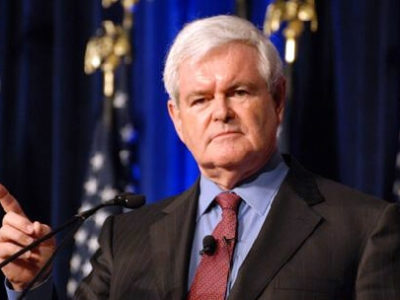Over the past week or so, what many have thought would come to pass now seems inevitable: Mitt Romney, although not technically the GOP’s candidate for the 2012 election, is essentially being hailed as such. And yet none of the other candidates have officially withdrawn from the race: Rick Santorum, Ron Paul, and most (or perhaps least) surprisingly, Newt Gingrich.
Before Romney established himself as the front-runner, Gingrich enjoyed a few weeks as the leading Republican candidate after he announced his campaign. Although placing last (or very near it) in the first few primaries, Gingrich became a serious contender in early December after winning the South Carolina primary and taking second in Florida and then Nevada. Like Ron Paul, however, support for Gingrich has dropped off sharply since the beginning of the campaign.
The former Speaker of the House has been involved in a slew of unfavorable incidents over his political career. His relationship with his wife Callista has come under scrutiny. Not only is she 20 years his junior, she is his third wife, and several nasty allegations have been made about Gingrich’s treatment of his other two wives – for example, the claim that he asked his first wife for a divorce while she was in the hospital recovering from surgery to remove a tumor.
Although Newt denies these allegations and also, perhaps correctly, pointed out that they have no bearing on his ability as a presidential candidate (saying in response to the question in the South Carolina debates, “I am appalled that you would begin a presidential debate on a topic like that.”), he has voiced many other unpopular opinions over the years on topics like same-sex marriage and, more recently, poverty. Gingrich is against social programs and has called Obama “the food stamp president” in response to the increase in welfare enrollment that has occurred under his administration.
These factors, combined with a general loss of momentum, have forced Gingrich to the bottom of the Republican heap. Polls currently place him as one of the least favorable Republican candidates. But despite the polls and growing pressure from within the GOP to drop out, Gingrich remains in the race.
And yet, a look at Gingrich’s history shows that we shouldn’t be surprised by this steadfast determination. This is, after all, the man who was the backbone of the re-emerging Republican party in the 90s and created a Republican majority in the House. This is the man who told voters in the South Carolina debates, “I think grandiose thoughts.” This is not a man who gives up easily, even when he has nothing left to fight for.



















